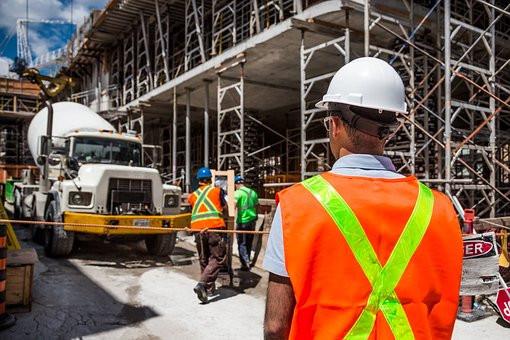Explore the World's Best Ideas
Join today and uncover 100+ curated journeys from 50+ topics. Unlock access to our mobile app with extensive features.
Human capital
Human capital is the most important resource in any organisation, meaning the collective knowledge, attributes, skills, experience, and health of the workforce.
Each person in the group has a unique set of capabilities, and the individual decides where to put them to work.
Moving to a new role pays off when the position stretches the capabilities of employees or better use their skills.
3
20 reads
Increasing lifetime earnings
From the McKinsey data sample, roughly a third of US, German, and UK workers, and almost a quarter of Indian workers, are moving one or more quintiles up in their estimated lifetime earnings from their career starting points. This is because they continuously upgrade their skills, raise their income, and build track records that translate into value.
But individuals can't make these bold moves unless an employer sees their potential and takes a chance on hiring them.
3
13 reads
Work experience adds to the value of human capital
Work experience builds on the foundation of formal education and increases the value of human capital.
Workers not only earn wages but gain knowledge and new capabilities that they carry with them. Someone who starts out taking orders in a fast-food restaurant learns the art of handling difficult customers and staying cool under pressure. Someone who starts in IT by answering questions on a help desk absorbs technical knowledge to use later as a network administator.
3
10 reads
Work experience in occupations with higher educational barriers
- People who start in occupations with higher educational qualifications earn more than other workers over their lifetimes. Entry-level skills contribute a larger share of those earnings.
- The reverse is generally true for people who start in occupations with lower educational requirements. They often earn less over a lifetime, with the greater share driven by work experience.
- Someone who attended poor-quality schools and lacked any postsecondary education or training is starting from behind in the labour market as employers often rely on college degrees.
3
11 reads
Educational disadvantage does not have to lock in destiny
In advanced economies such as the United States,
- 28 per cent of high school graduates have higher earnings potential than the median holders of associate degrees
- 37 per cent of associate degree holders could earn more than median bachelor's degree holders over their lifetimes.
The upwardly mobile group appears to be amassing work experience in an effective way that gives real benefits for 60 to 80 per cent of lifetime earnings. However, many people can't make these leaps because of structural and social barriers.
3
9 reads
Building skills
The average person switches roles every two to four years. These role moves enable people to build or demonstrate their skills.
Moves can involve
- employees assuming new roles within their current company,
- changing workplaces
- changing specialities or occupations
- pursuing a combination of these strategies.
Each move increased wages by 6 to 10 per cent on average. Individuals who want to reinvent themselves and take on more senior roles often have to move to a new environment.
3
9 reads
The bolder the move, the bigger the boost
Those who take on new roles involving bigger changes or challenges receive bigger rewards. When someone made a move for higher pay, their new job typically involved a more significant share of skills and responsibilities that were not part of their previous job.
For example, a German worker who started as a welder then changed jobs twice. When he became a maintenance supervisor, the move involved a skill distance of 33 per cent; when he later became a production manager, the move involved a skill distance of 47 per cent. His average skill distance is therefore 40 per cent.
3
10 reads
‘Experience seekers’ and ‘early movers’ boost their earnings through effective career moves
Movement patterns and outcomes of people with more than ten years of work history:
- Experience seekers start with lower-than-average wages but drive themselves upward by moving roles more frequently and stretching their capabilities.
- Early movers make bigger leaps in the first part of their career. Someone may start in one field, and then realize that their passion lies elsewhere.
- Late movers stay put or make more incremental moves in the early stage of their career but eventually take a bolder step.
- Lock-ins change jobs less frequently because they pursued what suited them from the start.
3
9 reads
Employers can attract and retain talent
Companies that offer more structured training for their employees and provide more opportunities for internal advancement seem to stand out.
Three priorities stand out for companies that help individuals grow.
- Understand the potential in people as well as their current knowledge and skills.
- Embrace mobility. Employers can attract the best candidates among the big talent pool and boost the productivity and engagement of valued employees who stay.
- Strengthen coaching, particularly early in an employee’s tenure as skills development happens day to day on the job.
3
9 reads
IDEAS CURATED BY
"Making money is art and working is art and good business is the best art." ~ Andy Warhol
Alexis T.'s ideas are part of this journey:
Learn more about humanresources with this collection
Ways to counter the Great Resignation
Strategies for making better decisions
Tips for giving effective feedback
Related collections
Similar ideas
6 ideas
2 ideas
On work interactions
mckinsey.com
6 ideas
Critical Roles in your Organisation - A Playbook
mckinsey.com
Read & Learn
20x Faster
without
deepstash
with
deepstash
with
deepstash
Personalized microlearning
—
100+ Learning Journeys
—
Access to 200,000+ ideas
—
Access to the mobile app
—
Unlimited idea saving
—
—
Unlimited history
—
—
Unlimited listening to ideas
—
—
Downloading & offline access
—
—
Supercharge your mind with one idea per day
Enter your email and spend 1 minute every day to learn something new.
I agree to receive email updates





